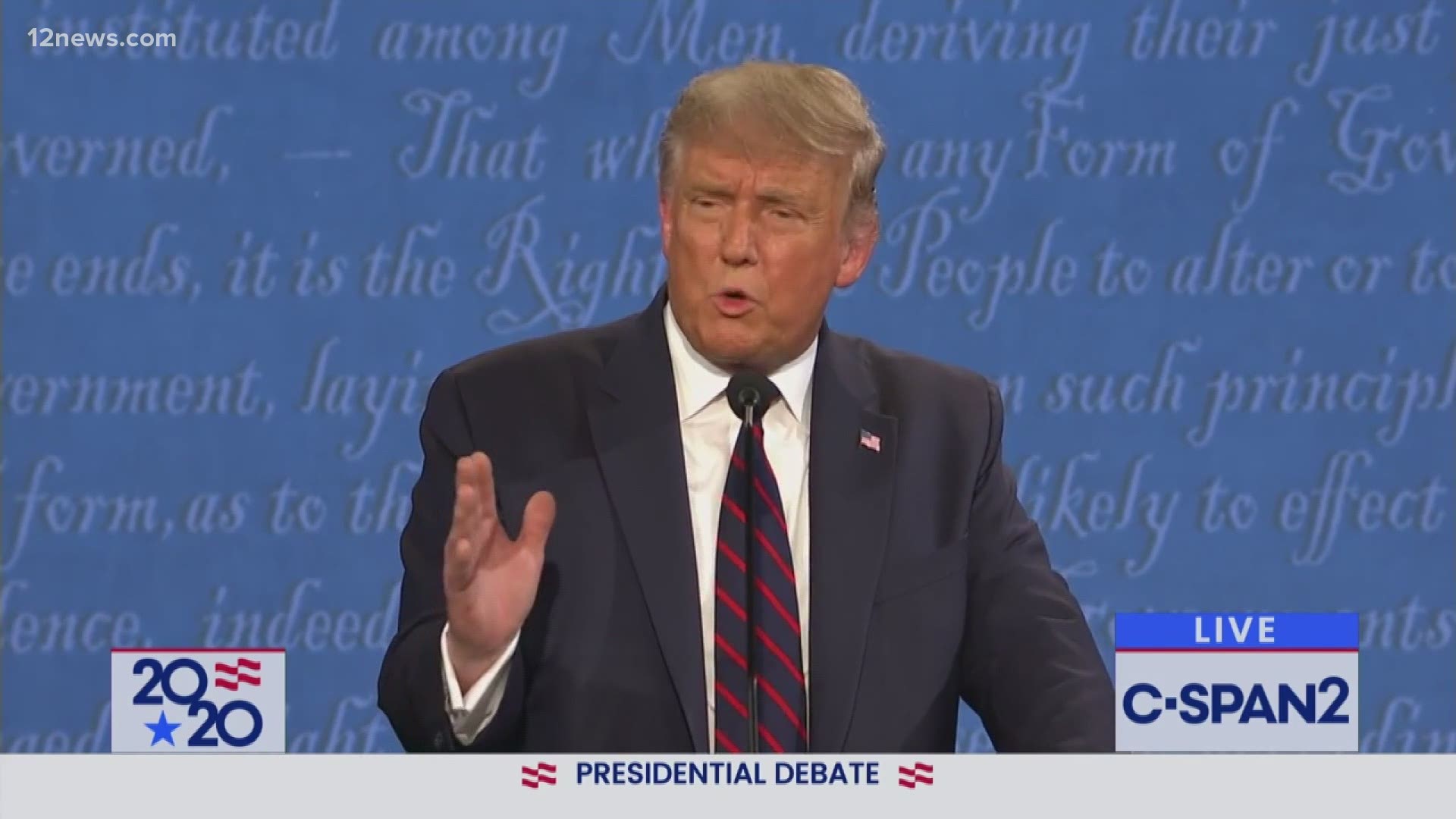PHOENIX — Two days after the presidential race was called for Democrat Joe Biden, President Donald Trump shows no sign of conceding as he challenges the election in the courts.
The president has telegraphed for months that he might never concede.
But would that matter?
There’s nothing in the law that requires a formal concession of defeat. The loser still loses, concession or not.
“It’s an important gesture toward the democratic norms that Americans support and rely on for a sense of stability,” said Samara Klar, professor at the School of Government and Public Policy at the University of Arizona.
That’s the basic argument for a concession: It’s about a shared commitment to country before party.
But Klar’s research on voters emerging from a deeply divisive election suggests they’re past concession speeches.
“The truth is, most Americans are just ready to move on from the election.”
There could be a yearning to stick around for a concession speech.
A video posted last week on the 12th anniversary of Sen. John McCain’s 2008 Election Night speech in Phoenix has more than 19 million views.
“He wanted to influence history and he was acutely aware of how he’d be remembered by it,” said Mark Salter, a longtime McCain confidant and co-author.
“He wanted to move on from disappointment at the end of the campaign in 2008 and, more importantly, he wanted the country to move on.”
The speech, written by Salter, was praised for unifying the country after Barack Obama’s historic victory as the first African-American president.
Salter writes about the late senator’s speech and the mood on Election Night 2008 in his new book, “The Luckiest Man.”
“Whether they supported me or President Obama,” McCain said, “I wish Godspeed to the man who was my former opponent, and will be my president.”
The tradition of the losing candidate in a presidential election conceding defeat goes back more than a century, according The American Presidency Project:
- In 1896, William Jennings Bryan sent a “concession telegram” to President-elect William McKinley:
“Senator Jones has just informed me that the returns indicate your election, and I hasten to extend my congratulations. We have submitted the issue to the American people and their will is law.
W.J. BRYAN”
- From 1932 through 2016, 18 of 20 defeated nominees formally conceded.
- In the last 100 years, all four defeated presidents - Herbert Hoover, Gerald Ford, Jimmy Carter and George H.W. Bush - formally conceded. Trump would be the fifth.
The most wrenching concession may have come from Democrat Al Gore.
On Election Night, then-Sen. Gore had conceded, then retracted his concession, when it appeared he still had a chance to win Florida and take the White House.
A month later, the U.S. Supreme Court put a stop to a recount in Florida, handing the presidency to Texas Gov. George W. Bush.
Gore stood before the camera and firmly declared:
“Let there be no doubt. While I strongly disagree with the court’s decision, I accept it. I accept the finality of this outcome.”
“It was in that moment that Gore put the office, put the process above politics, and stood aside," said Calvin Schermerhorn, a professor of history at Arizona State University.


